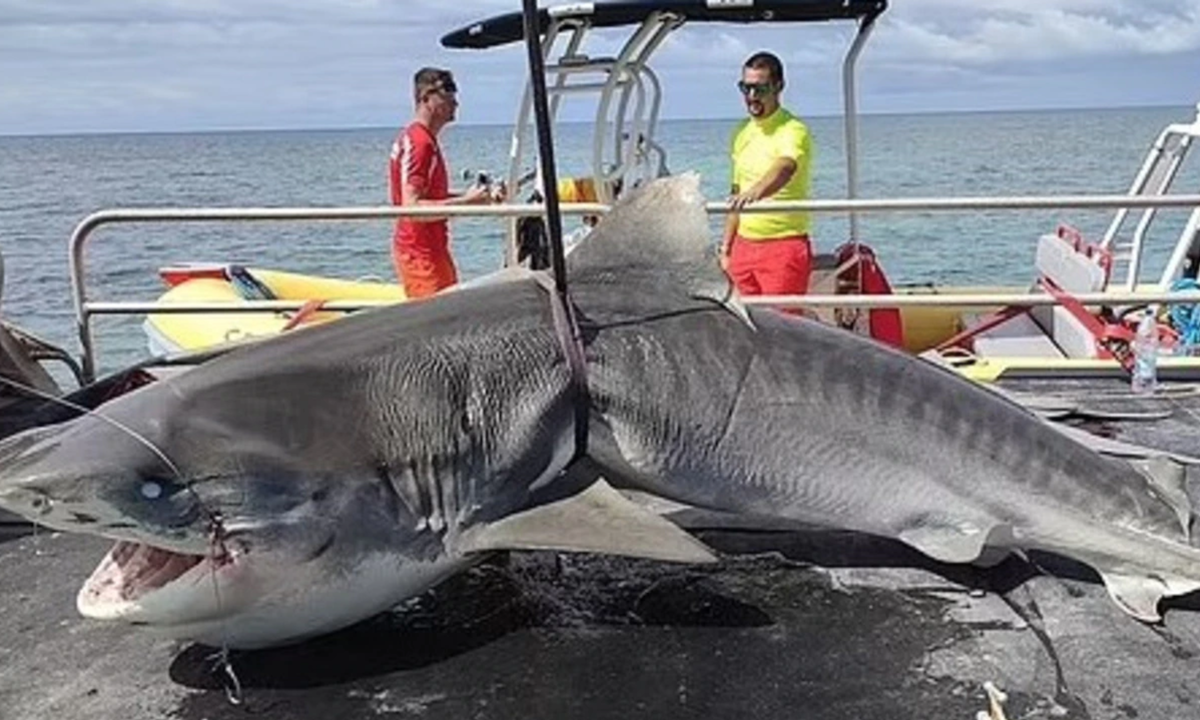

When a shark killed an Australian man in the South Pacific earlier this month, local authorities vowed to take action. They said they would find the culprit and bring it to justice. Of course, this would be a little different from most manhunts; when the quarry is a single unidentified shark and the search zone is an entire ocean, tracking down the killer is easier said than done.
Videos by Outdoors
But against all odds, after “an intense three-day hunt,” authorities managed to catch a 13-foot tiger shark this week that they believe is the culprit.
Tracking it down involved some serious forensics. Scientists were able to examine the shark bites on the victim’s body and determine that they belonged to a tiger shark about 13 feet in size, reports Media Entertainment Arts World Wide. Local authorities then dispatched shark hunters around the coast of New Caledonia, the Pacific island where the attack occurred. The hunters knew where to find tiger sharks about that size. After reeling in a couple of suspects, they found one that fit the description.
While medical analysis is still ongoing, an initial autopsy of the euthanized tiger shark has revealed some promising evidence. Human remains and pieces of a bathing suit were found in the shark’s abdomen, reports Radio New Zealand.
The victim, Chris Davis, was a 59-year-old father of three and an avid triathlete from Sydney, Australia. At the time of the attack, he was swimming about 500 feet from shore. Seemingly unprovoked, the shark darted through the water and grabbed him. A pair of nearby jet skiers spotted Davis struggling and rushed to the rescue, but they were unable to get him away from the animal in time. By the time they dragged Davis to shore, his legs and body were covered in bites.
Davis wasn’t the first victim of a shark attack at the beach. Just this January, a teacher named Bridgette Do survived a similar attack, losing a leg in the process.
Experts and wildlife advocates argue that shark attacks aren’t the result of malicious behavior on behalf of the sharks. In this case, they blame nearby restaurant goers, who frequently throw food into the water near the site of the Davis’s death. Sharks can smell bait from long distances, and human food is known to attract wildlife.
Other experts argue that culling sharks isn’t effective: Just because a few animals were captured and killed doesn’t mean this won’t happen again. Instead, they argue, a better solution would be to stop attracting sharks to the beach in the first place.










Pretty F%/÷ing Sad that they kill a shark thats being a shark. You take the risk swimming in their world. PATHETIC!!!!!!
So true man, it’s just an animal. Coconuts kill more people a year than sharks do, but you don’t see people cutting down every coconut tree in sight!